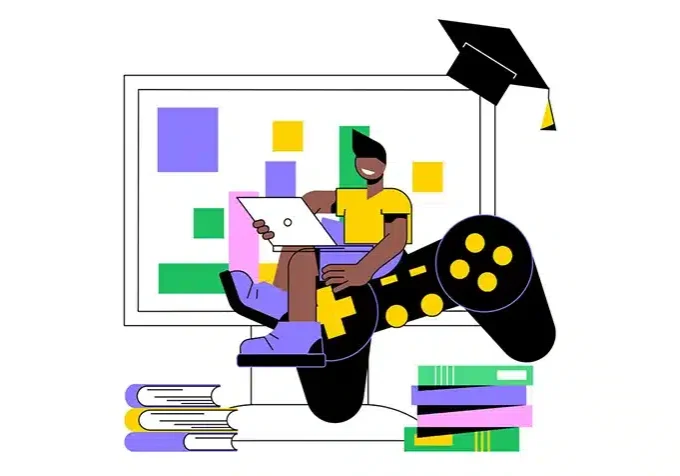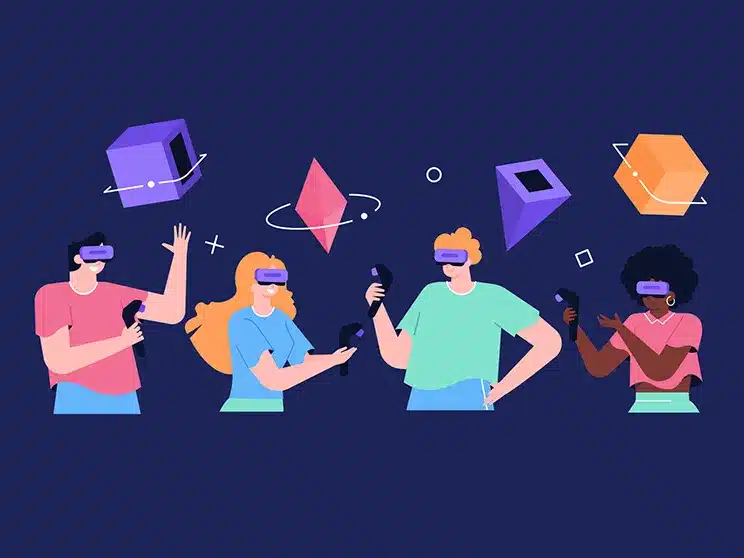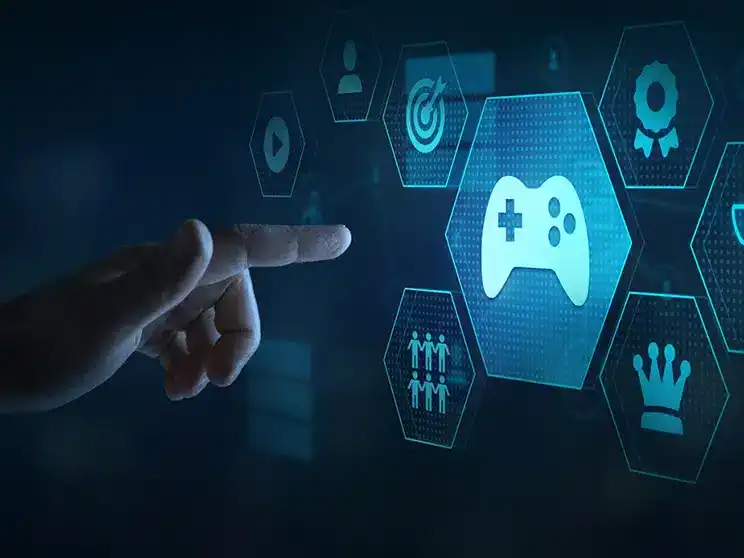How Gamified Learning Reshapes Education
Updated: June 19, 2024
Published: December 29, 2023

Digital games are hugely popular these days, available in all formats and genres on mobile devices, computers, social media, and gaming systems. So it makes sense that games have leaped educational spaces, both in and out of the classroom. If you have used the app Duolingo to improve your English, Spanish, or French, you have already experienced gamified learning.

Gamification is the application of game-design elements and design to non-game situations. Applying game concepts to educational materials makes learning more interactive and fun by engaging and motivating users to achieve specific goals. To do this, the application can use elements like points, badges, leaderboards, challenges, levels, rewards, social interaction, compelling design, immediate feedback, and more.
The Benefits of Gamification in Education
Gamification has multiple benefits when it is used in an educational setting:
Increased Engagement
Gamified learning can capture students’ attention, making learning fun and motivating them to participate more actively than they might in a typical classroom activity like a lecture.
Enhanced Motivation
Game elements like badges, levels, points, and rewards incentivize students’ progress and achievement. This, in turn, encourages students to strive for their goals and improves their performance.
Personalized Learning
Gamification can adjust to each student’s learning style and pace, allowing a customized experience that will improve outcomes.
Promotion of Critical Thinking and Problem-Solving
Games often involve strategic thinking, decision-making, and problem-solving skills. Students can practice these skills in a gaming environment and then apply them to other academic challenges.
Immediate Feedback
Games offer instant feedback to students, allowing them to learn from their mistakes immediately and offering them the chance to try again.
Collaboration and Social Interaction
Because of the popularity of social media, games now incorporate these socialization concepts as a way to appeal to modern students. Social interactions have the added benefit of fostering collaboration between students and teaching teamwork.
Retention of Knowledge
Interactive experiences and engaging games lead students to retain information better.
Reduced Stress and Anxiety
Gamified learning creates a low-stakes learning environment for students, where they can feel more comfortable experimenting without the fear of failure.
Real-World Application. Games Can Simulate Real-World
Scenarios allow students to apply theoretical knowledge to practical situations. They then receive real-time feedback and the opportunity to make changes to improve their outcomes.
The Duolingo language application uses many of these techniques to reinforce practice and retention of the material. As you work on your language skills, you can earn points and advance through the levels of the game. These levels also help you to track your progress, from beginner to intermediate, to advanced. You receive rewards for your achievements, which positively reinforces your behavior and makes you want to continue in the game.
To motivate you to use the app every day, Duolingo keeps track of your streaks – that is, the number of days in a row that you have used the app. By sharing your streak length and achievements with your friends via social features, the app makes the game interactive and encourages you to compete against your friends.
You may not realize it as you play, but Duolingo also uses adaptive learning. This means that as you play, it adjusts the difficulty level to help you improve your skills. Paired with a fun and attractive visual design, the app seems so much like a game that you may forget that you are learning as you use it.

Does Gamification in Education Increase Engagement?
Gamification has been shown to increase student engagement in three ways, as identified by a recent article in Edutopia. The first is providing awards, badges, and achievements to every student – instead of just the top finisher. This allows students to learn at their own pace and feel a sense of achievement when they achieve their goals. Instead of focusing on who the winner is, the students are focused on their learning.
Second, gamification can increase engagement by allowing students to earn renewable rewards through their self-directed learning. When students earn a free pass for a homework assignment or the chance to opt out of a test, they are motivated to earn something that has value to them. If these rewards renew every month, they always have something they are working to achieve.
The third way Edutopia says gamification can increase engagement is by promoting goal-setting and student agency. By providing students with options for learning activities, they can select the activities that best suit their own needs and learning styles. This is particularly effective for college students, who are not only working to achieve a degree but are perfecting both goal setting and personal agency as they prepare to hit the workforce.
Gamification helps to motivate students of all ages intrinsically, encouraging them to complete tasks for the satisfaction of the achievement, instead of external pressure or the promise of a reward. It also makes complex subjects easier to comprehend, encouraging students to become more active, engaged participants in their learning. These soft skills are all important ones for college students to master before they graduate.
Games at University of the People
Gamified education is one of many learning strategies employed at University of the People, an accredited virtual university that offers a range of degree and non-degree options to learners based in over 200 countries.
If you are interested in taking a deep dive into the realms of computer science, UoPeople is the place for you. You can choose to earn an associate or bachelor’s degree in computer science or pursue a certificate program if you are looking for something short-term. where you can dig into computing concepts and languages to launch your career.
If you are extremely skilled at playing video games, you may have a future in professional gaming. At UoPeople, you will find a lot of students who love video games and participate in esports. At this link, you can watch a playlist of UoPeople students playing some of today’s most popular video games.
